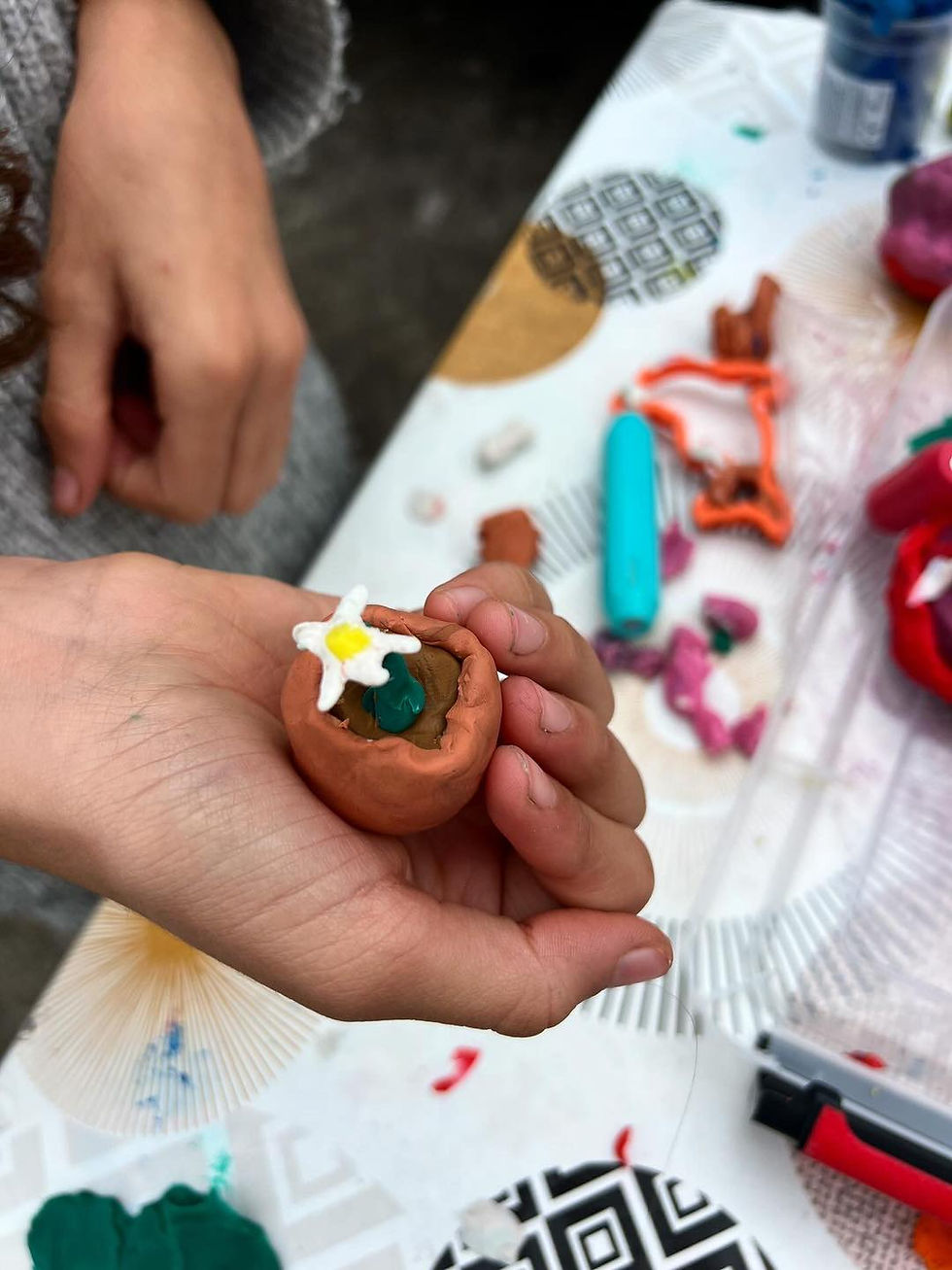Running out of patience and building patterned floors
- Art Refuge

- Aug 8, 2017
- 3 min read

CALAIS
The Lille Court has clearly stated that the Calais prefecture must fully uphold human rights in the area, and that showers, toilets and water must be provided. These are not yet forthcoming and people, confused and exhausted, are running out of patience. There was much urgent debate amongst the Secours Catholique staff at the Friday meeting as to where these facilities should be best placed in order for services to continue to be effectively run.
Across the two days we were moved by the contrast between the local prefecture’s desire for refugees to be invisible and yet people’s ability to find visibility within the centres we work in and the art therapy groups around the various tables.
THURSDAY
HOSTEL Here we spoke around the bed about different languages and dialects, about running out of patience and about the role of talking books as a potential offer and antidote to so much waiting.
DAY CENTRE People looked exhausted, sunburnt, unkempt. The Calais winds were strong all day. They brought with them an extra unease. Things felt like they were coming unstuck, the atmosphere was fraught.
And yet as with each week people sat around the table with us to talk, draw, make and in several cases, reconnect. Everyone said they had no idea in their heads, that they couldn’t think of anything to draw or make. They then somehow managed to find the resources. The bricks and coloured tiles continued to lend a meditative element to the work, after a somewhat faltering start of things being half begun and then quickly swept away. Two houses were built over an hour or so, one builder by trade approaching the task with his large builder’s hands, with skill, commitment and tenacity until the roof was fully constructed. He then made a parquet floor.
Amidst the making we heard about periods of police brutality while held in detention in Calais, or at the food distribution.
DISTRIBUTION WITH MEDECINS DU MONDE We’ve been asked to set up an evening group with the Medecins Du Monde medical team as a trial. The large map, taped to the side of the ambulance, proved a useful tool, reminding us of its role in the Calais refugee camp in Spring 2016, then as now small groups and individuals gathering to tell us about their journey to Calais.
Around the adjacent table we were given further accounts about people’s shock at arriving into such a harsh environment. There were young boys, new arrivals from Somalia, Chad, as well as more familiar parts of north Africa. Two boys had arrived the day before and explained that they were shocked to have already had teargas sprayed directly into their eyes. They wanted to tell us about the horrors of their time in Libya, not so different from this place.
As we left, with cricket being played on the road, and groups gathered on the scrubby grass, individuals headed off into the woods carrying tightly tied up bundles of their belongings. A police van drew up and the light began to drop.
FRIDAY
SAFE HOUSE The spaces provided within this house continue to be intensely moving and it once again felt an honour to be able to sit around the dining table with a group of about ten exhausted boys from Ethiopia and Eritrea, mostly visiting the house for showers and clothes washing, one or two residents of the home joining them at the table.
At the start of the afternoon news of the death of one of the boys known to members of the group brought those seated around the table to silence. There followed a shift in mood as one boy persevered with building his dream house with internal laid flooring and rooms, a sturdy roof, a terrace around the perimeter with trees, and a Welcome sign over the entrance. He had essentially created the Safe House and the other boys responded with delight and admiration.
In parallel we were shown detailed journeys on phones that included trafficking and numerous dangers, and were supported by the Eritrean team member in explaining why risk taking behaviour needs to be countered with patience because there are many people who do care.
One teenager who had earlier explained that he had nothing left after his phone has been smashed by police now asked if he could borrow a phone to speak to his mum in Eritrea. We left as the early evening meal took over the place of the art materials and a family-style gathering was shared before the boys headed back out into the evening.



Comments